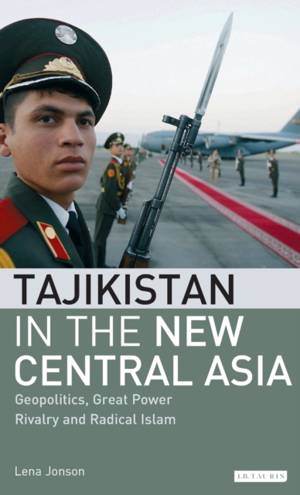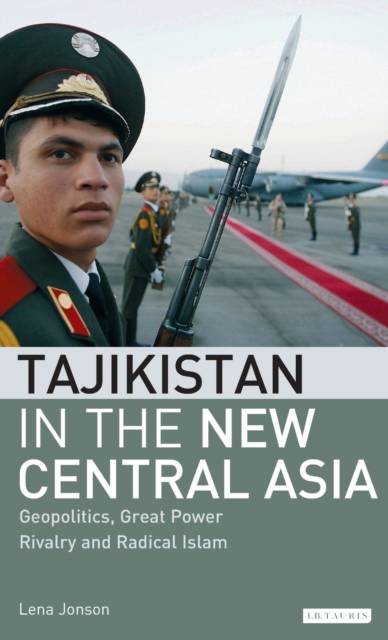
Bedankt voor het vertrouwen het afgelopen jaar! Om jou te bedanken bieden we GRATIS verzending (in België) aan op alles gedurende de hele maand januari.
- Afhalen na 1 uur in een winkel met voorraad
- In januari gratis thuislevering in België
- Ruim aanbod met 7 miljoen producten
Bedankt voor het vertrouwen het afgelopen jaar! Om jou te bedanken bieden we GRATIS verzending (in België) aan op alles gedurende de hele maand januari.
- Afhalen na 1 uur in een winkel met voorraad
- In januari gratis thuislevering in België
- Ruim aanbod met 7 miljoen producten
Zoeken
€ 296,95
+ 593 punten
Omschrijving
Central Asia has become the battleground for the major struggles of the 21st century: radical Islam versus secularism, authoritarianism versus identity politics, Eastern versus Western control of resources, and the American 'War on Terror'. Nowhere are these conflicts more starkly illustrated than in the case of Tajikistan. Embedded in the oil-rich Central Asian region, and bordering war-torn Afghanistan, Tajikistan occupies a geo-strategically pivotal position. It is also a major transit hub for the smuggling of opium, which eventually ends up in the hands of heroin dealers in Western cities. In this timely book, Lena Jonson examines Tajikistan's search for a foreign policy in the post 9/11 environment. She shows the internal contradictions of a country in every sense at the crossroads, reconciling its bloody past with an uncertain future. She assesses the impact of regional developments on the reform movement in Tajikistan, and in turn examines how changes in Tajik society (which is the only Central Asian country to have a legal Islamist party) might affect the region.
The destiny of Tajikistan is intimately connected with that of Central Asia, and this thorough and penetrating book is essential reading for anyone seeking to make sense of this complex and important region.
The destiny of Tajikistan is intimately connected with that of Central Asia, and this thorough and penetrating book is essential reading for anyone seeking to make sense of this complex and important region.
Specificaties
Betrokkenen
- Auteur(s):
- Uitgeverij:
Inhoud
- Aantal bladzijden:
- 272
- Taal:
- Engels
- Reeks:
- Reeksnummer:
- nr. 2
Eigenschappen
- Productcode (EAN):
- 9781845112936
- Verschijningsdatum:
- 1/10/2006
- Uitvoering:
- Hardcover
- Formaat:
- Genaaid
- Afmetingen:
- 151 mm x 216 mm
- Gewicht:
- 449 g

Alleen bij Standaard Boekhandel
+ 593 punten op je klantenkaart van Standaard Boekhandel
Beoordelingen
We publiceren alleen reviews die voldoen aan de voorwaarden voor reviews. Bekijk onze voorwaarden voor reviews.









